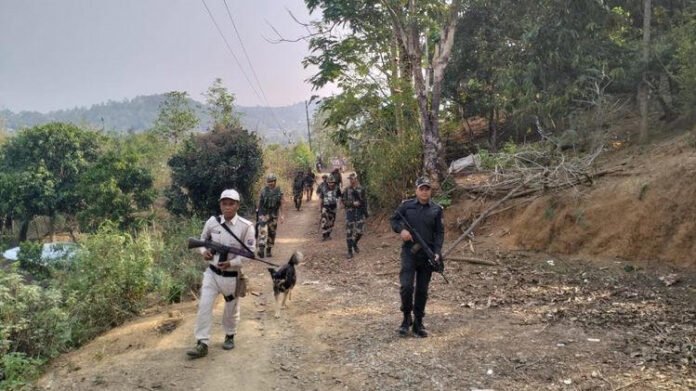The Manipur Police has launched a comprehensive survey aimed at identifying illegal Bangladeshi and Pakistani nationals residing in the state. The operation, which began in late April 2025, is being carried out in coordination with local administration units and is focused on border areas as well as urban settlements with high population density.
The drive comes amid rising national concerns about undocumented immigrants and their potential links to cross-border crimes and demographic shifts. The Manipur government has maintained that the move is not aimed at any particular community but is a part of a larger initiative to maintain law and order and ensure national security.
Survey to Cover Vulnerable Zones First
According to a statement issued by the Director General of Police (DGP), Manipur, the initial phase of the survey will focus on areas close to the Indo-Myanmar border, which have historically been prone to infiltration. The survey will also be conducted in urban zones such as Imphal East, Imphal West, Thoubal, and Churachandpur, where there are reports of suspected undocumented foreign nationals living under false identities.
Teams comprising police officers, intelligence personnel, and local civil authorities are going door-to-door, collecting biometric data and verifying documents like Aadhaar cards, voter IDs, ration cards, and residential certificates. Those who fail to produce valid Indian identity documents are being flagged for further verification.
Read More: Tensions Escalate in Manipur: Kuki-Zo Community Protests at Meitei Pilgrimage Site
Technology-Driven Verification
The Manipur Police have deployed facial recognition tools and AI-supported databases to cross-check individuals’ identities against national records. Suspected illegal residents are being recorded and tracked with the help of a secure digital system to ensure follow-up investigation.
A senior police officer involved in the survey told reporters, “This isn’t a crackdown, it’s a detection and verification drive. Our goal is to ensure that every individual residing in Manipur is accounted for legally.”
Community Involvement and Sensitization
To avoid panic or misinformation, the police have initiated public awareness campaigns in sensitive areas, urging cooperation from local communities. Pamphlets and announcements in local dialects are being circulated to inform residents about the objective of the survey and to assure them that legitimate Indian citizens have nothing to fear.
Civil society groups and village heads are also being engaged to assist authorities in identifying suspicious individuals who may have entered India illegally and assimilated into local populations without proper documentation.
The Manipur government has clarified that all actions under the survey will be conducted strictly in accordance with Indian laws and human rights protocols.
Rising Security Concerns Prompt Action
The launch of this survey comes on the heels of increased concerns over demographic imbalance and alleged criminal activities linked to undocumented foreign nationals in the region. Intelligence agencies have flagged the possibility of sleeper cells and cross-border trafficking networks operating in Northeast India, prompting states like Manipur to take preemptive measures.
Manipur Chief Minister N. Biren Singh recently stated that the government will not tolerate any form of illegal immigration that threatens the state’s security and harmony. “We must protect the cultural and demographic identity of our state. This survey is a step in that direction,” he said during a recent press briefing.
Legal Action and Deportation Plans
Once the survey identifies illegal immigrants, the state government plans to initiate legal proceedings as per the Foreigners Act, 1946, and coordinate with the Ministry of Home Affairs for deportation processes where applicable. Temporary detention centers may be set up to house individuals during verification and processing.
The Manipur Police have assured that humanitarian considerations will be taken into account in cases involving children or individuals with special needs.


